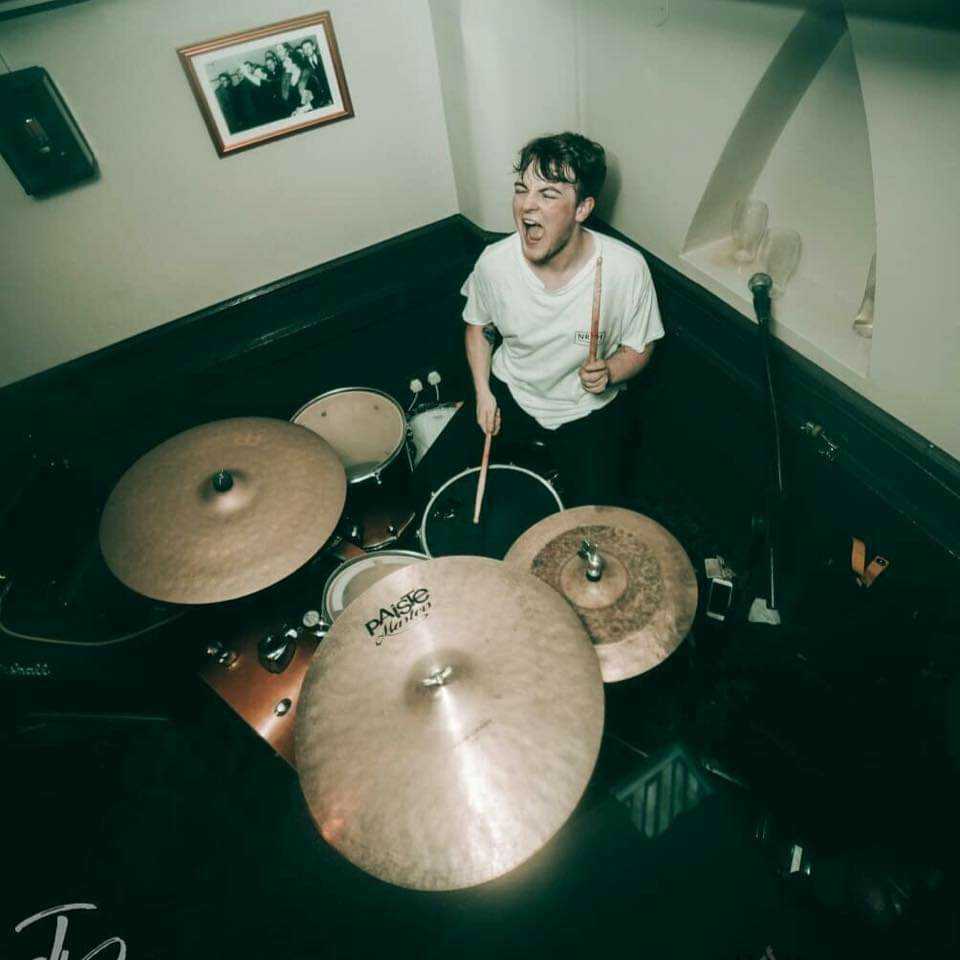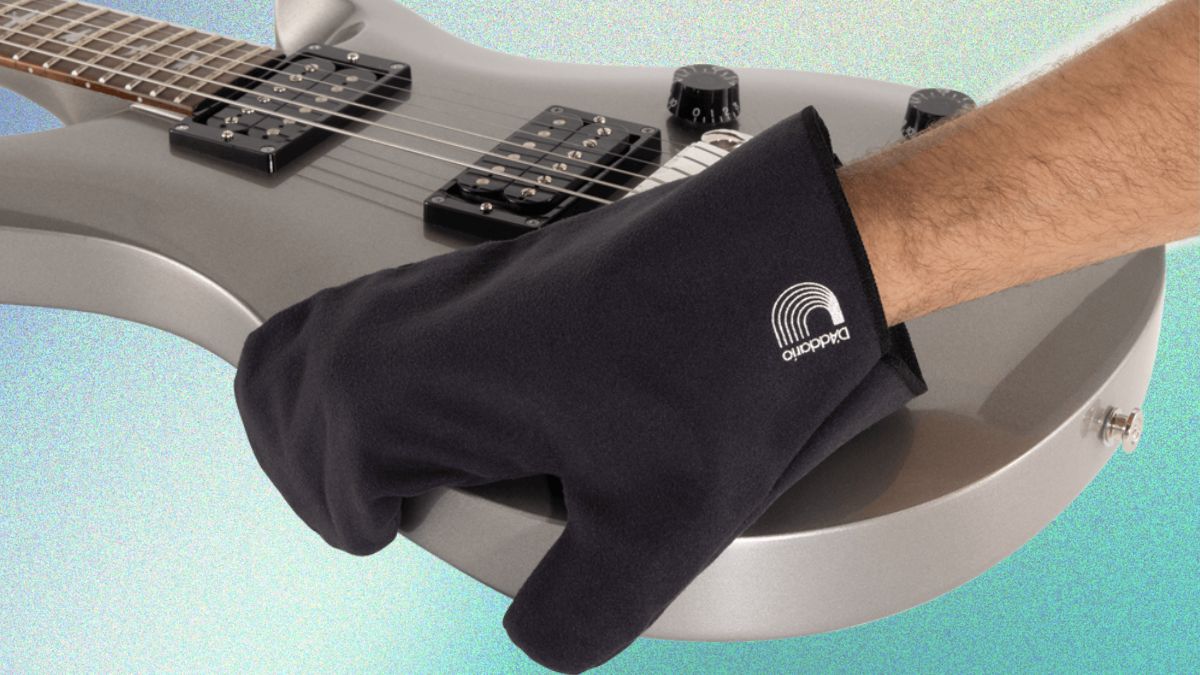Best beginner guitars for metal: 10 top axes to cover all your metal needs
Explore the very best in beginner metal guitars from the likes of Squier, Epiphone and PRS, including a selection of great options under $500/£500
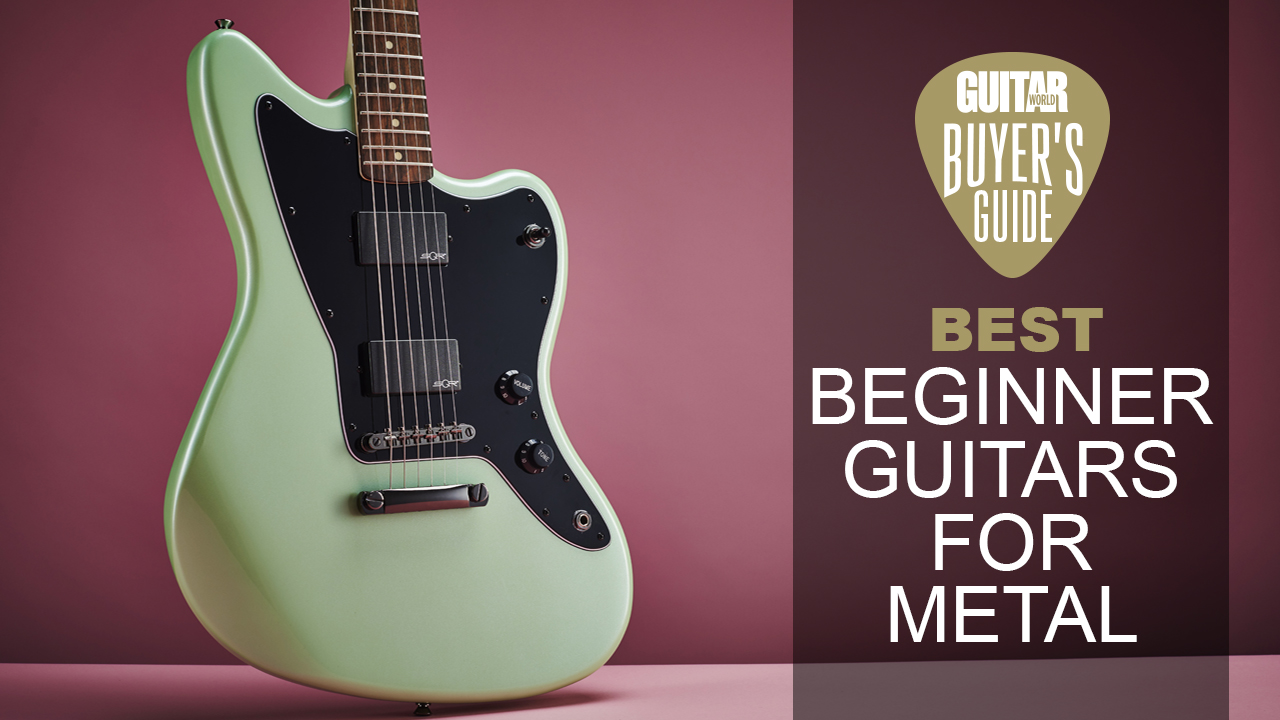
All the latest guitar news, interviews, lessons, reviews, deals and more, direct to your inbox!
You are now subscribed
Your newsletter sign-up was successful
Choosing one of the best beginner guitars for metal might sound like a complicated process, but that honestly couldn’t be further from the truth. You’re right in thinking that a beginner metal guitar will need to cover lots of different ground – after all, there’s lots of different styles of metal out there. Thankfully, the guitars in this guide do just that.
When it comes to metal and the guitars associated with it, it’s easy to assume that unless it’s pointy, it’s no good. While this is definitely still the case for some people, we’re seeing more and more metal-friendly versions of the classics from Squier, PRS and Epiphone – and some of them don’t even look like metal guitars, but pack a tonal punch which will knock even the pointiest of guitars off its perch.
The amount of choice in the beginner metal guitar space is pretty astonishing, but amongst the raft of options, you’ve also got to think about whether you want a six, seven or eight-string guitar, standard scale or baritone, active or passive pickups… the list goes on. Thankfully, we’ve compiled this guide to help you choose the very best beginner metal guitar – and we think you’ll be pretty happy with what we’ve found.
We’ve included some expert buying advice at the end of this guide, so if you’d like to read more about choosing a great beginner metal guitar, click the link. If you’d rather just get to the products, keep scrolling.
Best beginner guitars for metal: Our top picks
This entire is packed with fantastic beginner metal guitars, which makes choosing our top picks an especially difficult process. All of these guitars will satisfy your metal cravings – but as always, some are a bit better at doing that than others.
Our number one pick has to be the Epiphone SG Modern Figured. Not only does it look slick, brutal and truly stunning all at the same time, it also sounds the part too. Loaded with ProBucker 2 and 3 humbuckers (each with coil-splitting), this SG will happily handle all the gain you can throw at it, while still being able to offer delicate, sophisticated single-coil tones at the drop of a hat. The hardware is incredibly solid too, and with Grover locking tuners topping off this SG's spec sheet, we’re highly impressed.
If the SG is a bit too mean looking for you, or you want to make sure your new guitar goes the distance, then we’d recommend you buy yourself a PRS SE Standard 24-08. A PRS SE will cost you a bit more than the rest of the guitars in this guide, but what you get is one of the most versatile electric guitars under $1,000. Not only will this SE Standard 24-08 happily cover metal ground due to its dual-humbucker pickup configuration and ultra-comfortable neck profile, but it’ll see you right in pretty much every other musical scenario you find yourself in, too. Good, right?
If you want a beginner metal guitar to help you explore the world of extended range guitars, then we’d suggest you take a look at the Ibanez Gio GRG7221. It’s a great looking guitar, first of all, and with a lightweight body, GRG7 maple neck and fierce Infinity R humbuckers, it feels and sounds epic too. The price point that the GRG7221 sits at makes it the perfect beginner extended range guitar, yet the overall build quality is more like a guitar twice the price – meaning that this also provides a great, affordable 7-string gateway for any experienced players.
Best beginner guitars for metal: Product guide
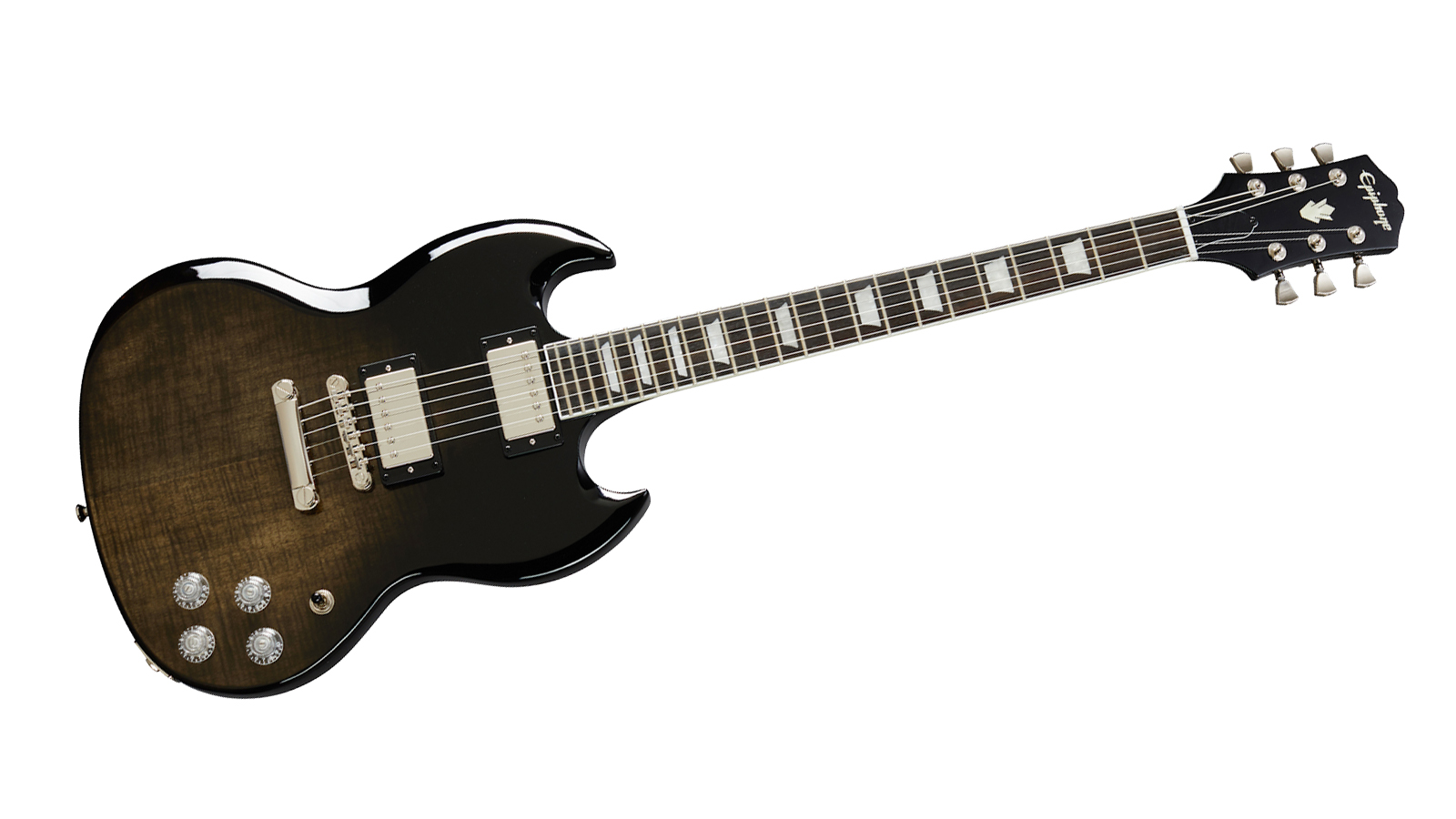
1. Epiphone SG Modern Figured
Our expert review:
Specifications
Reasons to buy
Reasons to avoid
The SG is undoubtedly one of the most iconic metal guitars in music history. Although AC/DC's Angus Young is usually the guitarist we think of when we see the SG, it was also the faithful companion of the almighty Tony Iommi of Black Sabbath – so undoubtedly played a huge role in the genesis of heavy metal as we know it. Over the years, we’ve seen various reissues from both Gibson and Epiphone, with some more metal-oriented than others, but for us, the classic Epiphone SG fits all the ‘beginner metal guitar’ criteria we could think of.
This model – the SG Modern Figured – is a standard SG under the hood, but with a stunning figured maple top to finish it off, its looks will turn heads wherever you’re playing. It’s equipped with two ProBucker humbucking pickups – a ‘2’ in the neck and a ‘3’ in the bridge position – which both have coil-splitting and phase-switching capabilities. As such, the achievable tones from this guitar can cover near enough all bases, including searing high-gain, with ease.
The hardware on the Modern Figured SG is 100% metal-friendly too. The stopbar tailpiece ensures that your strings are anchored solidly, achieving great resonance throughout the body, and with a LockTone ABR bridge and a set of Grover locking tuners onboard too? Well, the tuning isn’t going anywhere, no matter how low you go. Speaking of downtuning, the SG – like all ‘Gibson-style’ guitars – has a slightly shorter 24.75” scale length which equates to a lighter string tension. As a result, your string gauges will need to be on the chunkier side if you decide to tune down. This isn’t really a problem though – just ask most Doom metal guitarists, or the guy from HIM.
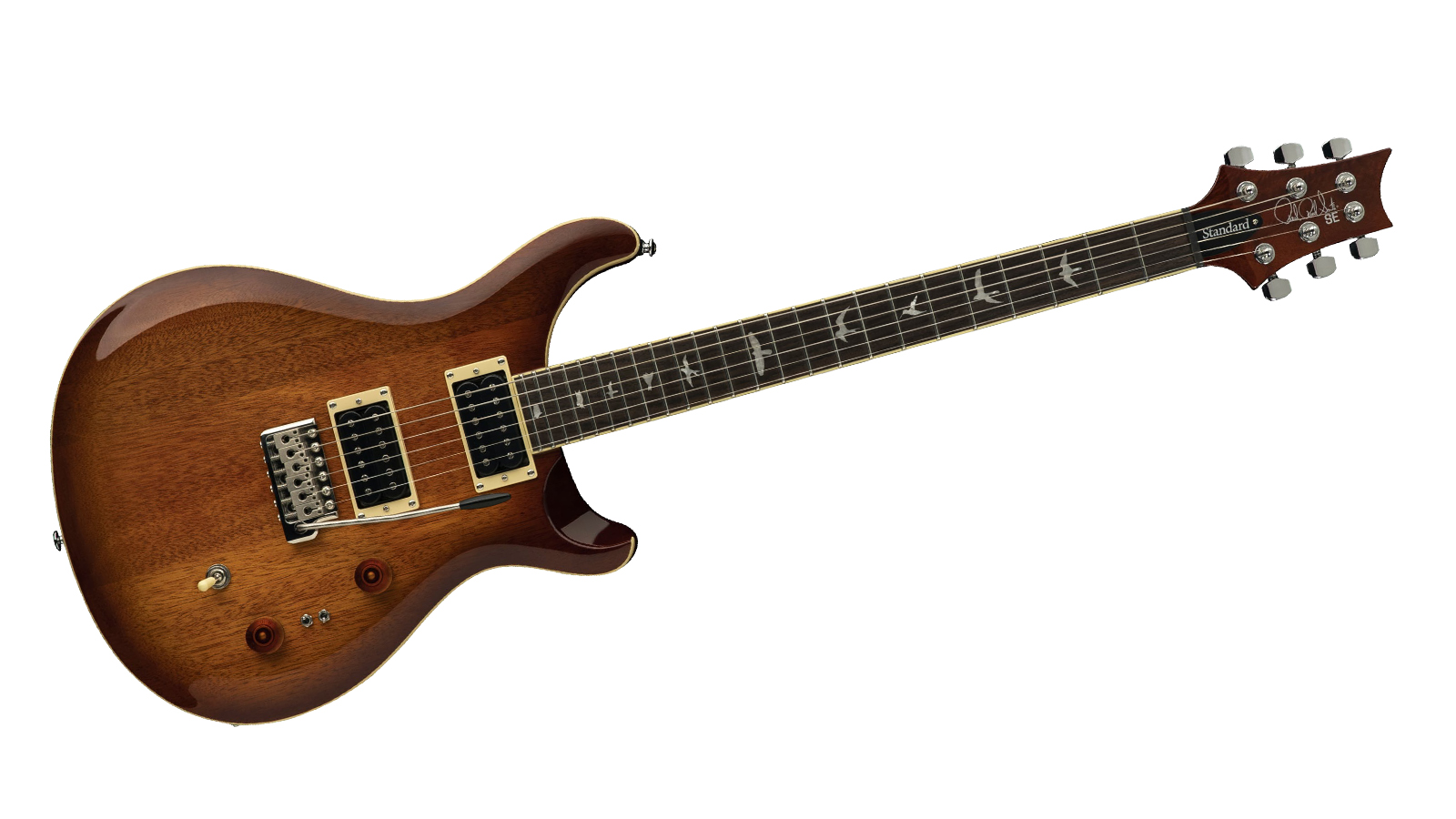
Specifications
Reasons to buy
Reasons to avoid
PRS is probably best known for making some of the most high-end electric guitars on the market right now. Its USA Core models will set you back no less than $4,000, but feature some of the most exquisite materials, finishes and tones you’ll ever find in an electric guitar. The chance then, to own a much more affordable version which still looks, feels and sounds great? Count us in.
As metal guitars go, we know this one doesn’t exactly look the part. What it does lack in blood-splatter finishes or ultra-pointy design, it more than makes up for in playability and tone. With PRS’ own ‘Wide Thin’ neck profile providing an ultra-comfortable, slick and fast playing experience, legato solo playing, riffing – and even earth-bending chugs – are happily achievable here. The 10” fingerboard radius makes string bending a dream too.
Another star of the SE Standard 24-08s show is the pair of PRS TCI ‘S’ humbucking pickups which are fitted to this guitar. The power and output of these pickups, while not insanely high, proves that they are more than capable of kicking out some proper metal tones when paired with the right amp. They’re versatile too, with coil-splitting also incorporated into their design. It’s an expensive guitar for those who’re just starting out, granted – but it’s an instrument that will do everything, not just metal.
Read the full PRS SE Standard 24-08 review
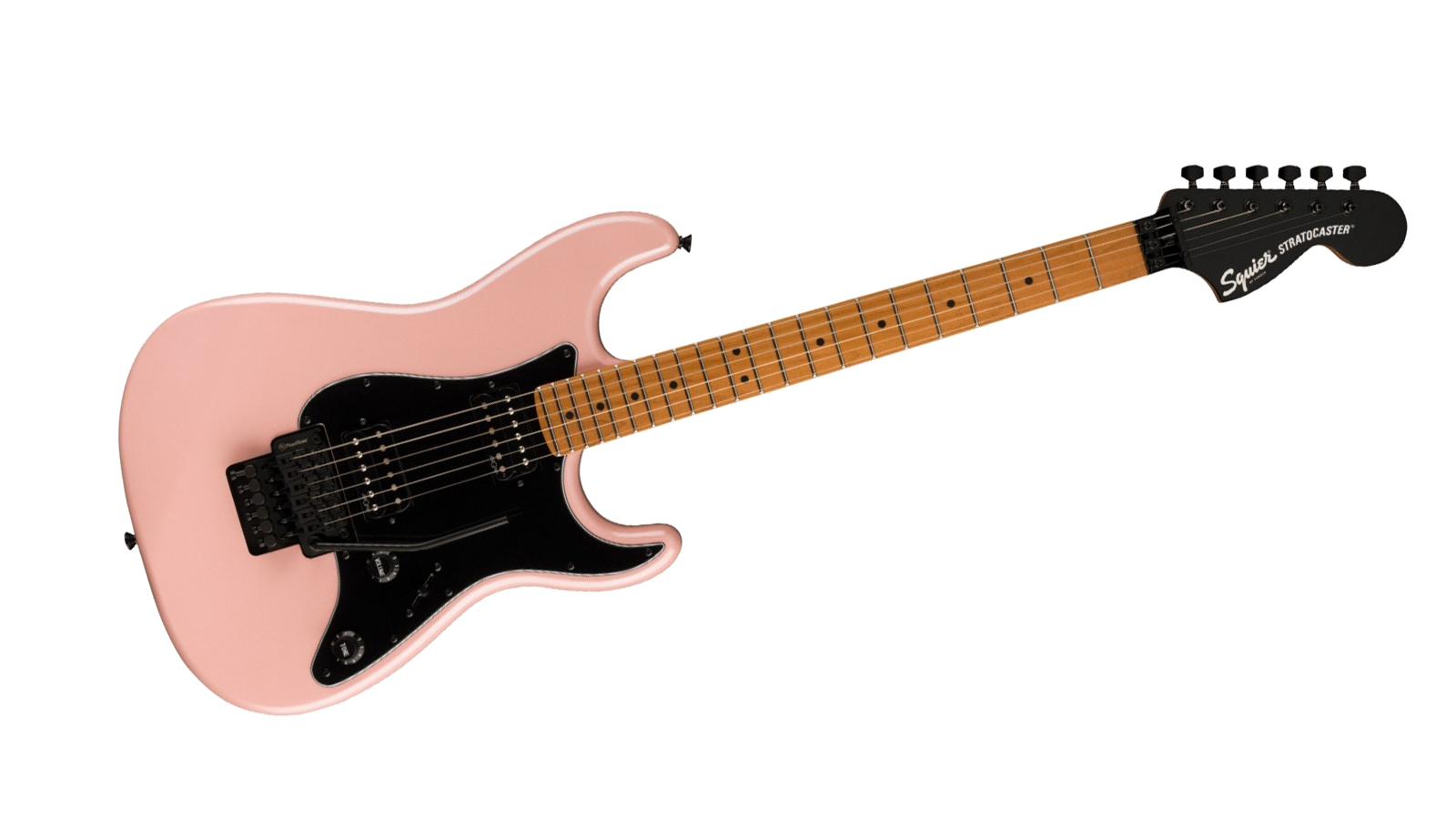
3. Squier Contemporary Stratocaster HH FR
Our expert review:
Specifications
Reasons to buy
Reasons to avoid
Squier guitars aren’t usually associated with playing metal. The iconic Stratocaster and Telecaster are staples of the country, pop and indie worlds, and the combination of low-output single-coil pickups and tons of gain don’t always play nicely together. With Squier’s contemporary series, those problems are thrown out of the window.
The Squier Contemporary Stratocaster HH FR might look like just another hot-rodded Strat, and while that is very close to the truth, there’s a raft of cool features which make this one quite so desirable. The pair of Squier SQR Atomic humbuckers are high-output shred-friendly affairs, and when combined with the Floyd Rose locking tremolo and 12” fingerboard radius, this guitar starts meeting all of the ‘metal guitar’ criteria we can think of. The pickups are coil-splittable too, and although this might not satiate the needs of the most die-hard metalheads, it means that this guitar is versatile beyond what you’d expect.
The neck has a sculpted heel, and is finished with a satin glaze – providing near-perfect playing conditions for anyone who picks up this guitar. As a beginner metal guitar, this has everything you’ll ever need to go down the rabbit hole – and while it’s definitely aimed towards some more extreme styles of music, it’s versatile enough for anyone to enjoy. We’d like to see a hardtail version too – but it’s not the end of the world, by any means.
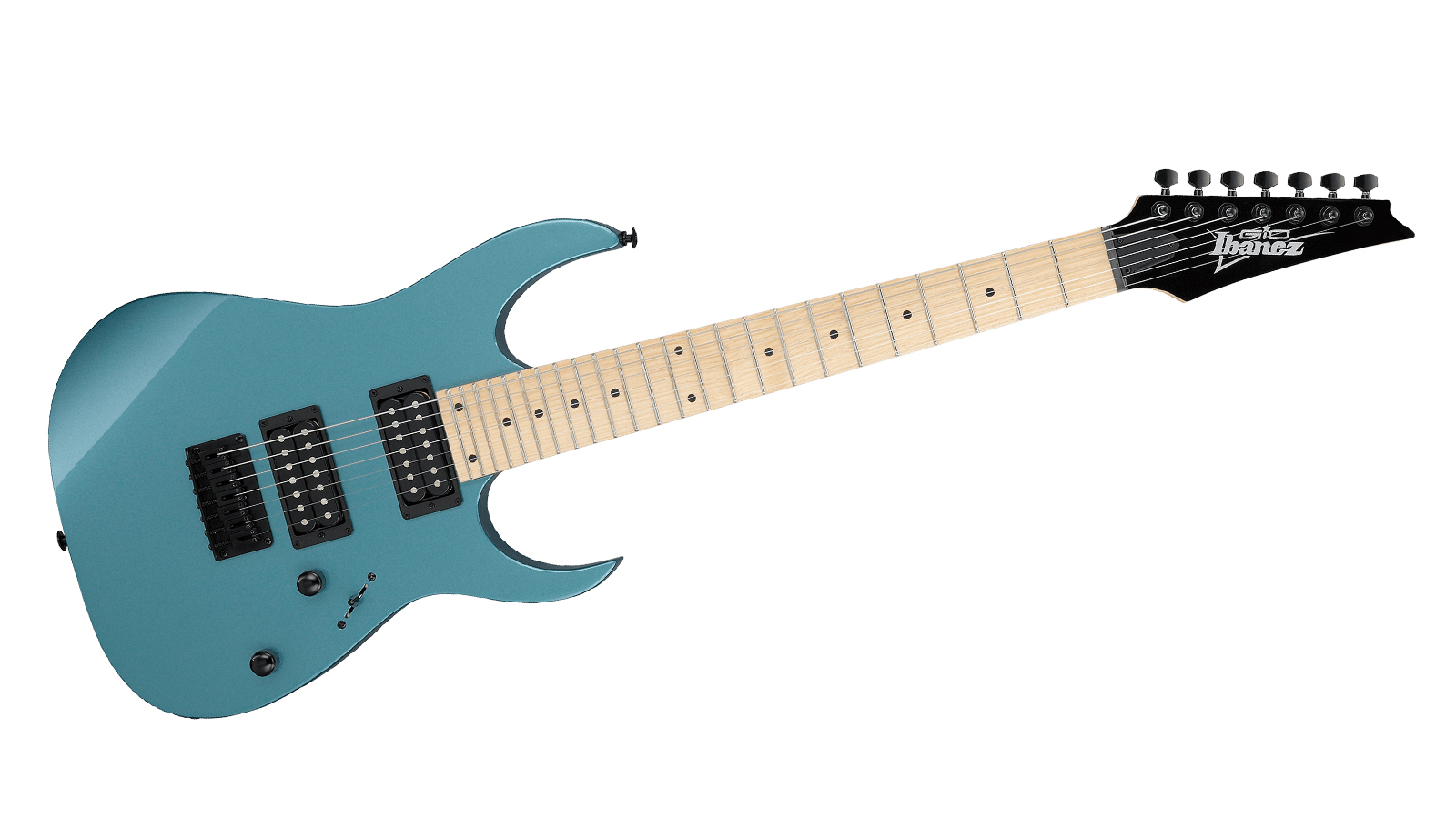
4. Ibanez Gio GRG7221
Our expert review:
Specifications
Reasons to buy
Reasons to avoid
If buying an extended range beginner metal guitar is the way you want to go, then the Gio GRG7221 is where we’d direct your attention. Seven-string guitars aren’t always easy to get to grips with – in fact, we’d recommend a six-string to anyone just starting out – but if you’ve fallen in love with the low-tuned tone and tonal potential of the seven-string guitar, it’s important for you to have a guitar that makes playing fun and easy.
That’s exactly what you get with the GRG7221. The GRG7 maple neck is slim and nicely finished, with no proud frets or fret edges, and a smooth surface for your hand to glide over easily. The neck is topped with a fingerboard made from New Zealand Pine, and even though it looks dark, it contributes loads of high-mid and top-end brightness to the tone of the guitar.
Speaking of tones, we’re happy that there’s so much maple, pine and poplar here. Cheaper seven-string guitars, through no fault of their own, often sound a bit muddy and messy. It’s often down to cheaper materials or electronics – but the GRG7221s construction, which is full of (usually) pale woods, combats this woolly tone impressively. All in all, we’ve not got much to complain about here. If seven strings are your thing and you don’t want to drop a load of cash on one, then this might be perfect.
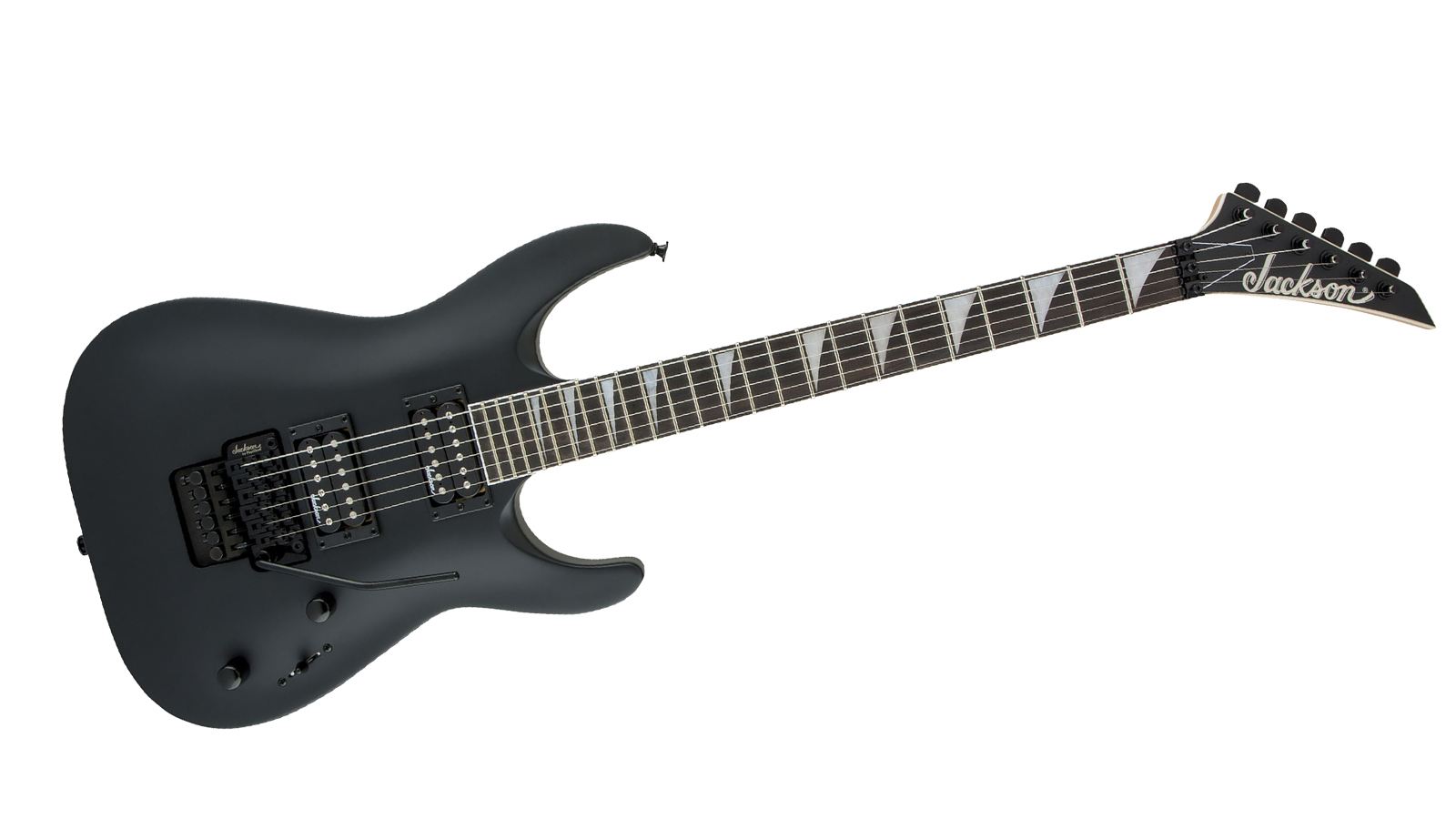
5. Jackson Dinky Archtop JS32 DKA
Our expert review:
Specifications
Reasons to buy
Reasons to avoid
Like most Jackson guitars, the Archtop JS32 DKA is designed with the heavier styles of music in mind. The bodies are resonant, punchy and well-crafted, the necks are super slim and playable, and when even the cheaper models are equipped with a locking tremolo, you know things are going to get heavy, whether you like it or not. You will like it, though.
The JS32 DKA showcases the popular pairing of a mahogany body and a maple neck, and it's clear to see that in this guitar, the combination of warmth, richness and the high-end 'snap' works well. Jackson is well-known for making guitars which snarl, and the two Jackson high-output pickups fitted to this guitar certainly deliver – with an aggressive, high-mid presence perfect for playing metal.
The setup and layout of the JS32 DKA is simple and pretty minimalist, which helps when you're trying to hone your craft. There's less to think about, less stuff to mess with and less to go wrong, so all of your focus can be placed on learning a new riff or playing technique. Honestly, we'd like to see a version with a few more frills, but for this money, we can't really complain.
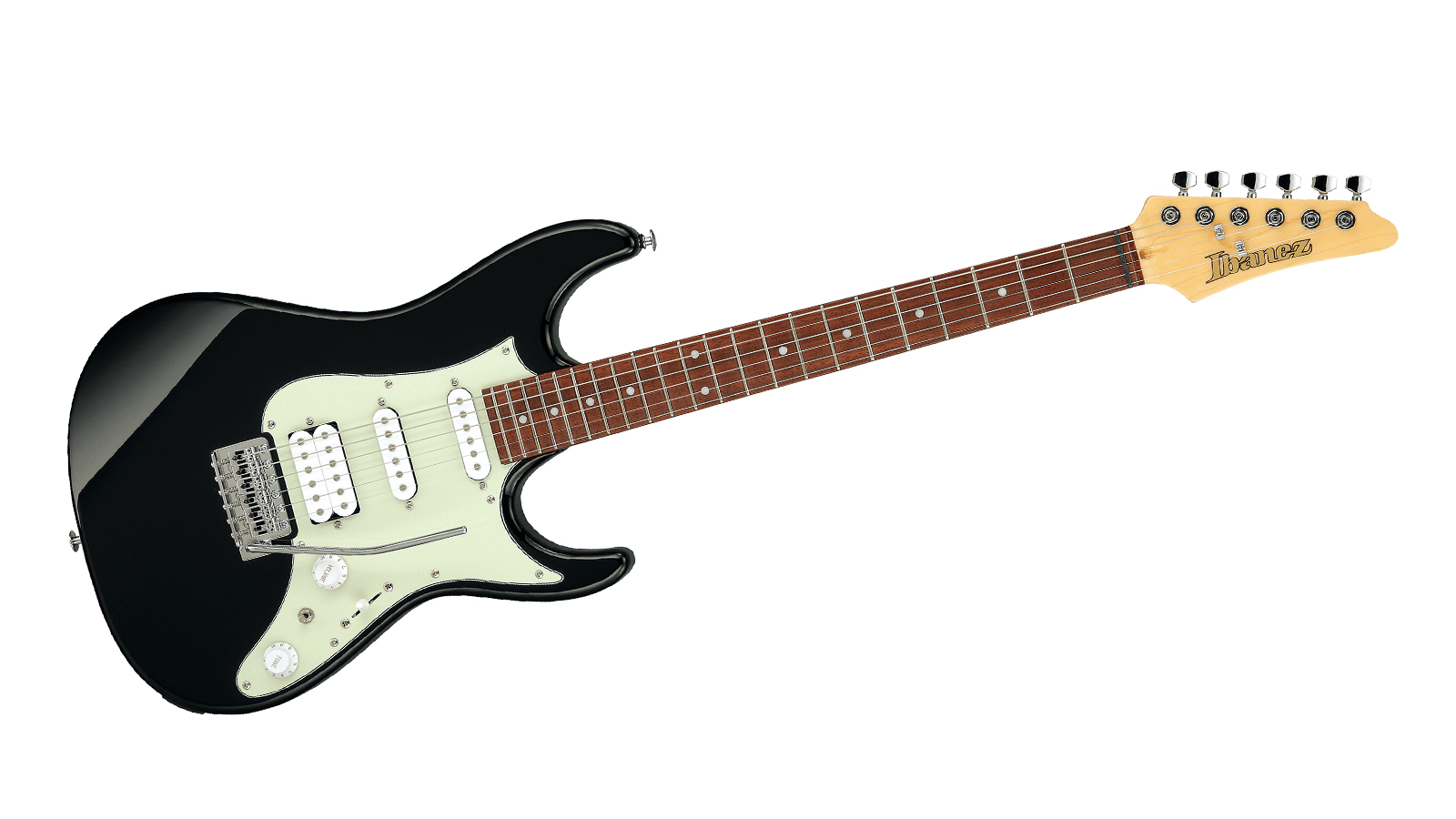
6. Ibanez AZES40
Our expert review:
Specifications
Reasons to buy
Reasons to avoid
The AZES40 is one of our favorite new budget guitars, full stop. The whole AZES range brings stylish, retro vibes to the world of electric guitar while producing modern sophisticated tones. Now, with the inclusion of a killer-sounding Accord humbucker in the bridge position, the AZES40 has shown its potential as one of the best beginner guitars for metal on the market right now.
Consisting of a poplar body, maple neck and jatoba fingerboard, the AZES40 delivers sweet, punchy tones, similar to those you’d expect from a Strat – but with the 25” scale length and 9.8” fingerboard radius taken into account, this guitar proves that playability is at the center of its world – perfect for the world of metal guitar playing.
The two Essentials single-coil pickups included offer some tasteful tonal versatility for those occasions when you’re not shredding quite so hard, but even then, they deal with gain surprisingly well. The five-way switch provides some interesting coil-splitting potential too – but the ‘Alter’ switch confused us, more than anything else. It may take us some time to understand it – but for the money, we’re happy to put some work in.
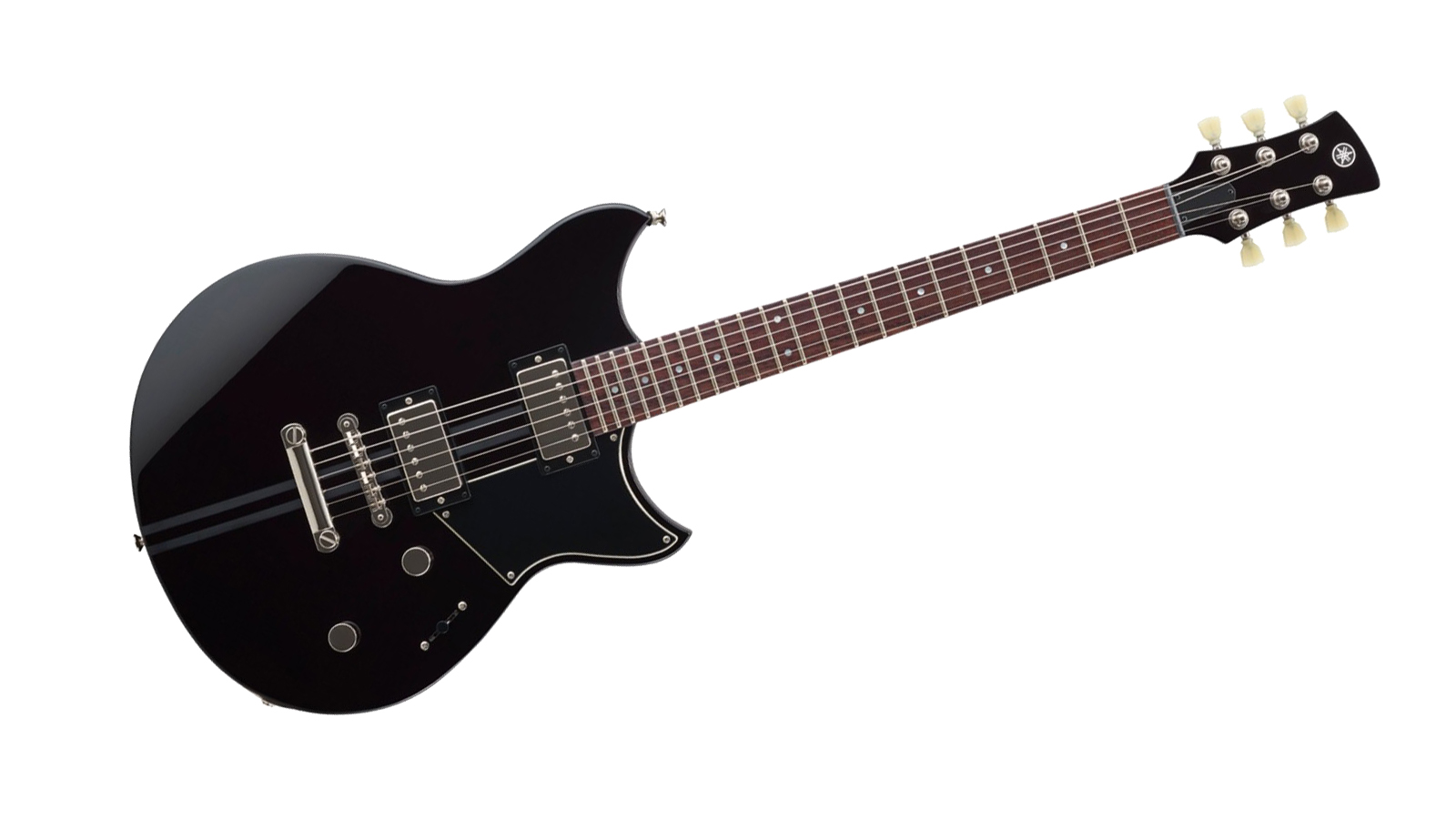
Specifications
Reasons to buy
Reasons to avoid
Yamaha's Revstar series is one which has generated huge levels of interest and respect from all corners of the guitar making and playing industries. Yamaha is exceptionally good at making products which outperform their price brackets in all areas of its business, but Yamaha guitars prove this point especially, and the Revstar Element RSE20 is no different.
The Revstar Element RSE20 has a mahogany body and neck, a rosewood fingerboard and a 24.75" scale length, reminiscent of a certain brand whose name begins with a 'G'. It's also a double-cutaway, and has 22 easy-to-reach frets – and while the inspiration is obvious, the Revstar manages to carve out its own identity, mainly through its incredible versatility.
The two VH3 humbuckers that the Revstar has equipped, combined with some sophisticated switching capabilities, delivers a tone which can be sweet and delicate, or thoroughly aggressive, depending on your style. We find that often guitars which aren't designed solely for playing metal can get overwhelmed quickly when lots of gain is introduced, but the Revstar Element RSE20 takes those kinds of tones in its stride. If you're after a beginner metal guitar that'll handle Napalm Death as well as it'll handle Taylor Swift, then this might just need to be your new guitar.
Read the full Yamaha Revstar RSE20, RSS20, RSS02T and RSP02T review
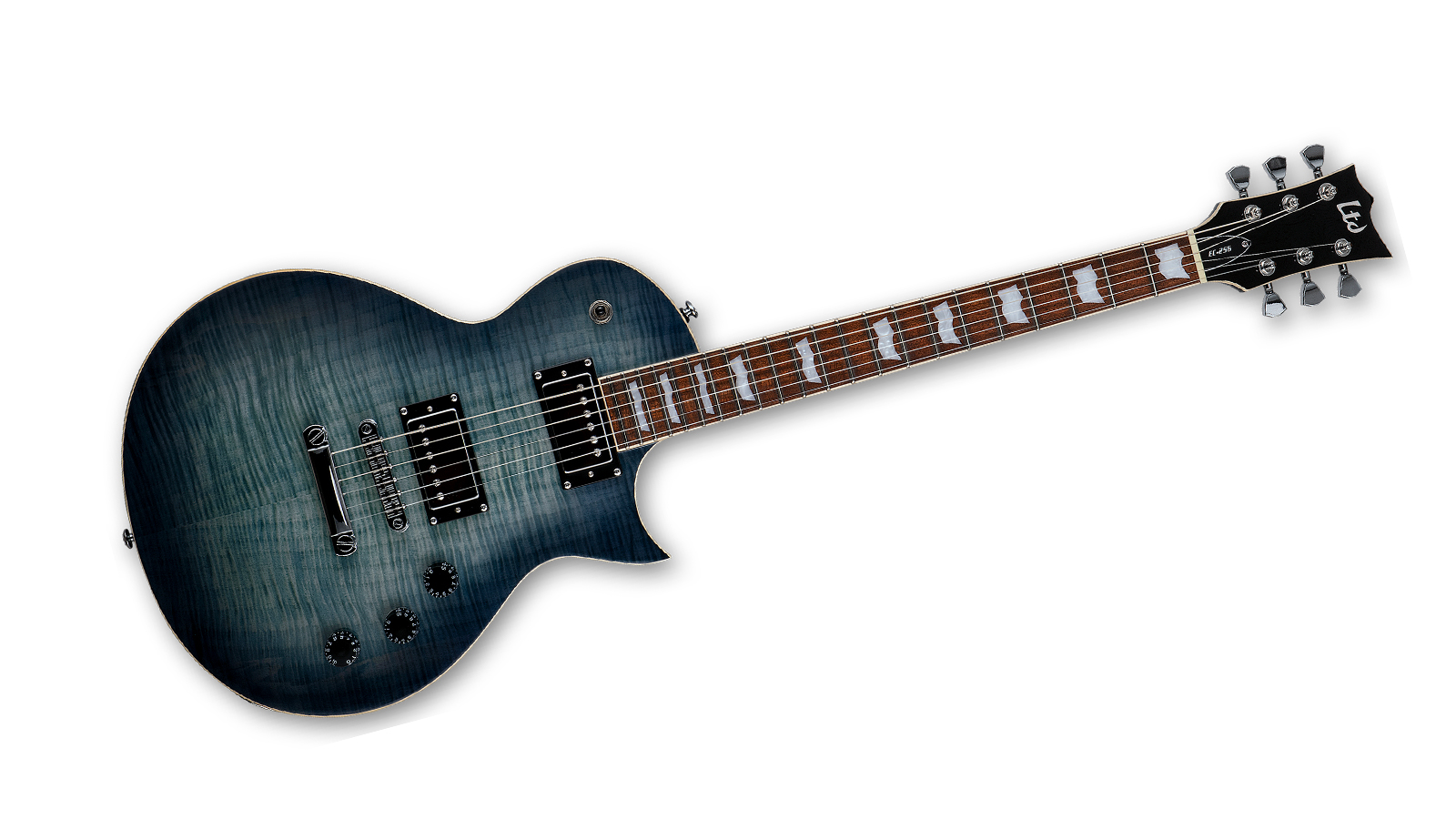
8. ESP LTD EC-256
Our expert review:
Specifications
Reasons to buy
Reasons to avoid
ESP is one of the world's biggest brands when it comes to making the best metal guitars. Its budget sub-brand, LTD, carries that reputation into the budget end of the market – offering players huge amounts of choice if they don't want to spend big money to get a great instrument.
The EC-256 is an aggressive, powerful guitar – it's as simple as that. The budget friendly alternative to the full-fat ESP Eclipse, we're still getting a solid mahogany body and neck as standard – and the 'FM' model even has a stunning flamed maple top. While said top is more of a fashion statement, it adds some extra brightness and top-end to what is otherwise a very rich sounding instrument – and this helps to bring out some extra note clarity which is crucial when playing metal.
For the money, the build quality of this guitar is thoroughly impressive. The hardware is incredibly solid, with the tune-o-matic bridge and stopbar tailpiece delivering great tuning stability – something which is crucial for any guitar aimed towards beginner players. There's no reason why this guitar won't see you right for a long time, if you're thinking of playing metal in the long run. It's not the most versatile guitar ever, though.
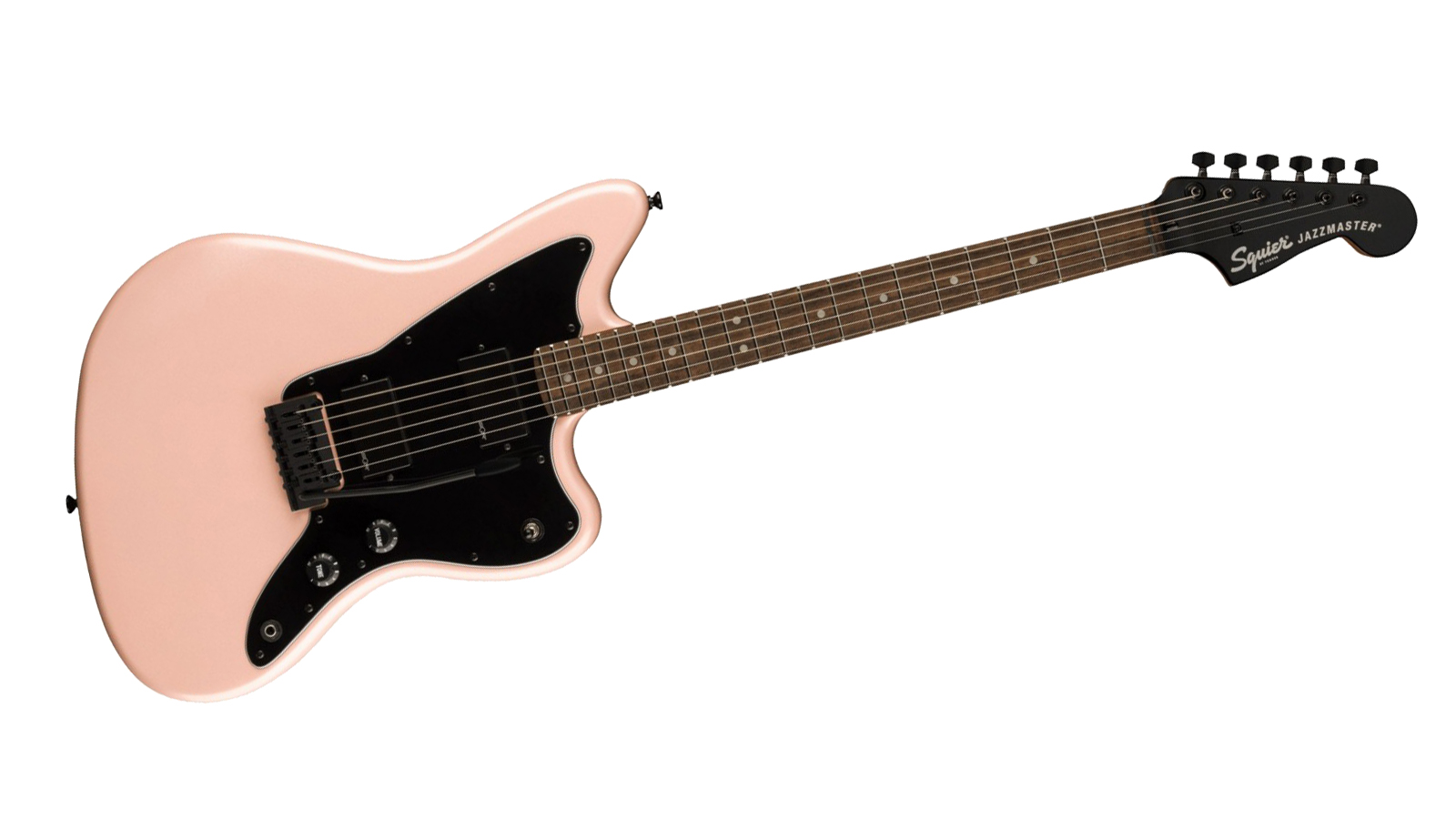
9. Squier Contemporary Active Jazzmaster HH
Our expert review:
Specifications
Reasons to buy
Reasons to avoid
Squier guitars are undoubtedly some of the very best if you're on a limited budget, although you'd be forgiven for thinking that they're only good for less extreme genres of music. 10 or so years ago, you'd probably be right – but after seeing Squier versions of the Jim Root and John 5 Telecasters, as well as a few other metal-influenced models, things have changed.
The Contemporary series is fairly new, and includes Strat, Starcaster and Jazzmaster options among others. While the Strat is probably the most popular, there's more and more demand for killer metal-inspired offsets – hence, the Contemporary Jazzmaster.
Long story short, it's a simple guitar, designed to play metal and all of its sub-genres. The material combination is reminiscent of the regular Squier JM – a poplar body, maple neck and laurel fingerboard – and as a result the guitar sounds balanced with just a whiff of a high-end boost. The pair of active pickups – Squier's own SQR offerings – take that base tone and run with it, helping players to create some incredibly powerful, filthy tones while still retaining plenty of note definition and personality. Budget active pickups often sound pretty generic, but that's not the case with the Contemporary Jazzmaster – a fact which is pleasantly surprising, and helps cement this guitar as one of the best around.
If you are looking to play any other styles, then be warned – this guitar does metal very well, but won't do much else to the same standard. It's not like there's a shortage of Squier guitars to choose from, however. If metal is your thing, then this guitar needs to be on your shortlist.
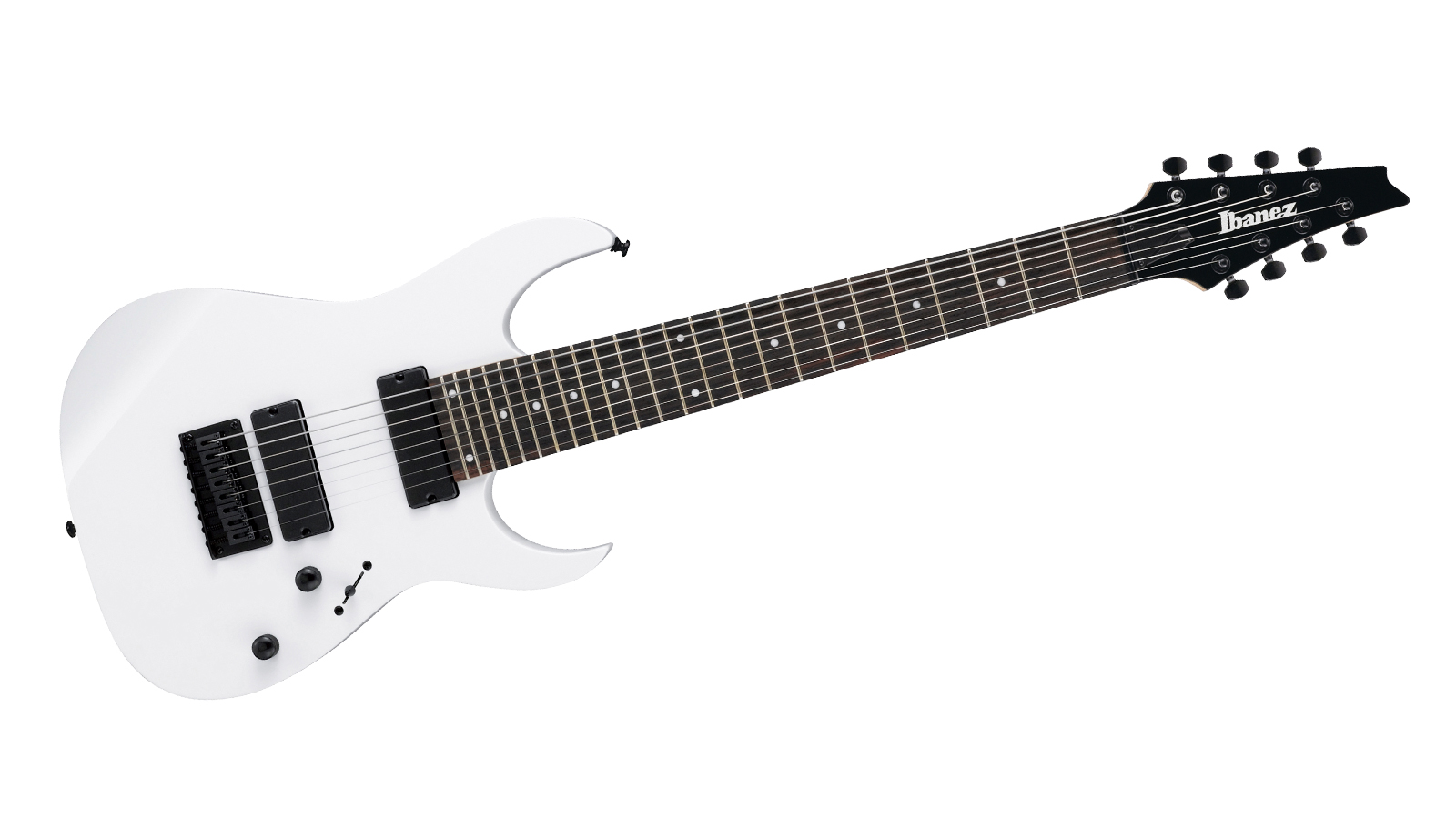
10. Ibanez RG8 Standard
Our expert review:
Specifications
Reasons to buy
Reasons to avoid
If you’re familiar with any of Ibanez’s guitars, you’ll know that the RG8 is one of its most recognizable and well-known models. Especially when it comes to beginner metal guitars, few manufacturers have been as influential as Ibanez. It’s responsible for the world’s first mass-produced seven and eight string guitars, and using that technology and understanding of extended range instruments, Ibanez has managed to produce budget friendly extended options for all sorts of players.
The RG8’s body is made from Meranti, which offers a similar warmth and resonance to Mahogany. When combined with the bright-sounding five-piece maple/walnut neck and snappy jatoba fingerboard, the tonal balance of this guitar is impressive. Most 8-string guitars need an extra bit of help when it comes to top-end clarity, so this combination of materials, as well as a pair of ceramic IBZ-8 pickups, delivers loads of tonal opportunity and versatility in a place where other eight string guitars might sound muddy. The baritone scale length also helps in this case, as the string tension is higher than usual.
Obviously, the main draw of the eight string is the new low tunings you’ll be able to explore. It’s also tempting to tune even lower – something which Ibanez has figured out – which is why the ferrule on the thickest string is routed out especially so you can use a bass string. While these super-low tunings are loads of fun, we’re begging you to get your guitar set up by a pro afterwards. That way, you’ll be able to enjoy ripping huge metal riffs without your intonation suffering.
Best beginner guitars for metal: Buying advice
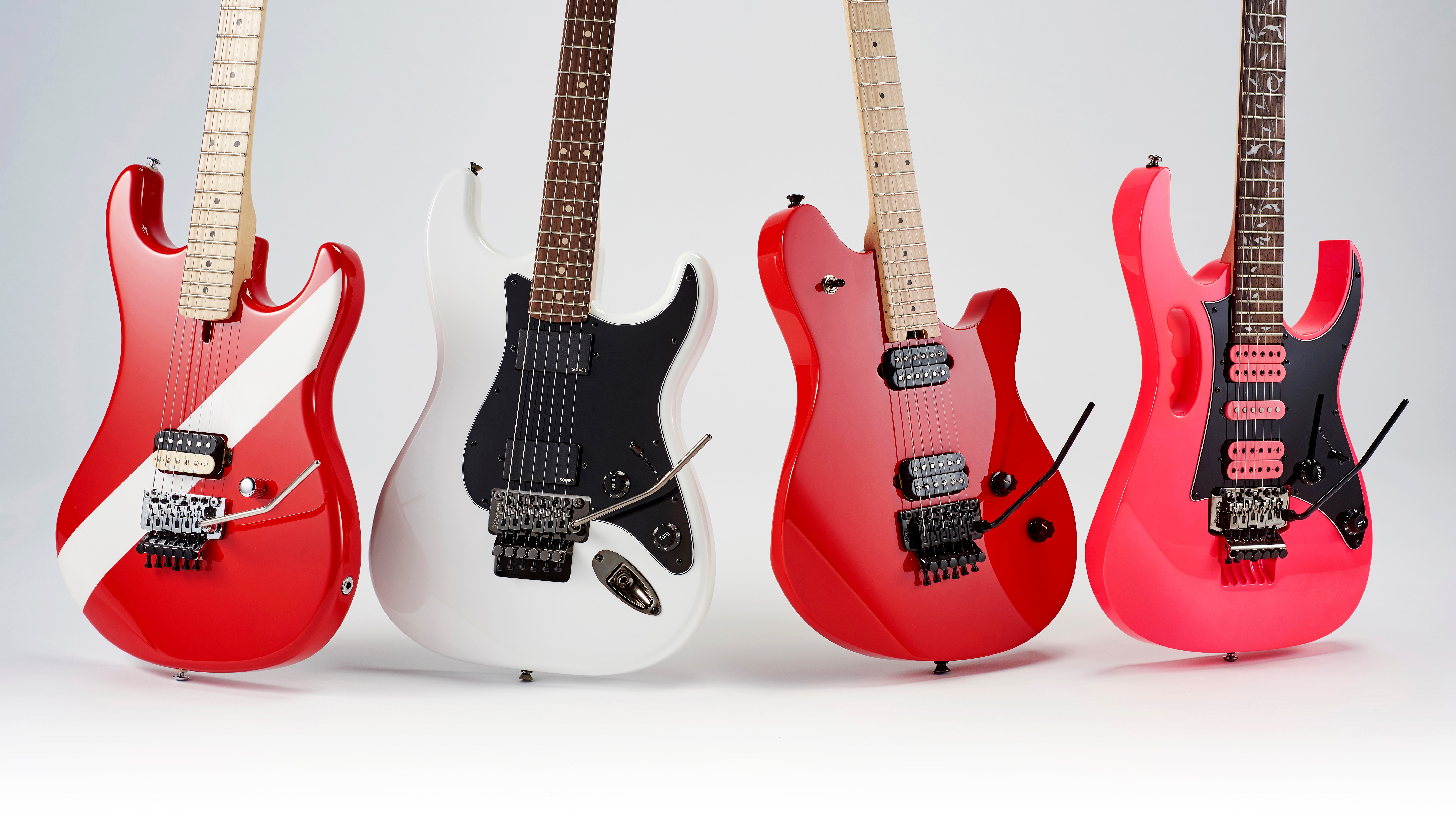
What do I need to know about the best beginner guitars for metal?
You can trust Guitar World
So, you’re thinking about buying a beginner metal guitar? Like making any large purchase, doing your research is crucial – but it helps to know which questions you should ask, which qualities you should look for and what to avoid when buying a new beginner metal guitar. We’ve included this buying advice to give you all the info you need to help steer you in the right direction.
Do I need a metal guitar to play metal?
Realistically, no – you don’t need a particular type of guitar to play metal music – although it’s a little bit like saying you don’t need a chainsaw to cut down a tree. While it’s not completely necessary to own a metal guitar, having one sure makes things easier when push comes to shove.
If you’re thinking about buying a beginner metal guitar, one of the most important things we can recommend is that you think long and hard about the type(s) of metal you want to play. Are you interested in ‘80s Hair Metal? ‘90s Thrash? ‘00s Nu-Metal? Djent? Your answer to that question will likely influence your decision on which guitar you buy – as every style demands a slightly different set of specifications.
Classic ‘80s metal tones are often produced by a set of passive pickups – usually with a medium to high output. This is one of the factors which help those tones to remain defined, organic and natural sounding, while the amp’s barrage of gain does its job. You’ll find these kinds of pickups on most budget metal guitars, as they’re cheaper than active pickups.
While a lot of ‘90s Thrash and ‘00s Nu-Metal tones were created with active pickups, these sounds can be faithfully recreated with a passive set. You’ll need to tweak your amp settings to up the input volume or gain a little, but with some experimenting, you’ll get there.
Passive vs Active pickups
So we’ve already spoken a bit about active and passive pickups – but what are they? And what’s the difference between them? Let’s start with the basics.
To put it simply, an electric guitar pickup is a magnet – or two magnets, in the case of a humbucker – which are wrapped in a wire coil. This magnet and wire combo creates a magnetic field which, when disturbed by the vibration of a string, creates a signal. This signal is sent from the pickup to the controls, and then to your guitar’s output – down your guitar cable and into your guitar amp.
Now, a passive pickup is deemed to be the most ‘traditional’ form of guitar pickup. ‘Passive’ means that it’s not powered by any other means, and so the final output of the pickup is lower. The output of the pickup depends mostly on the amount of winds of wire the pickup has, and a higher output pickup will sound ‘hotter’ and will cause your tone to distort sooner. A passive pickup tends to sound more natural and organic, as the magnet and wire are doing all the work.
An active pickup works in the exact same way, but there’s one major difference. Active pickups are powered by either 9V or 18V of power which comes from batteries, which boosts the output of the pickup to exceptional heights. This then means that the signal going into your amp is much more powerful, inducing distortion in a much more extreme and meaningful way. These pickups don’t sound quite so organic and classic, as they’re powered by external means. Great if you’re playing the most extreme styles, but not so much if you want ultimate versatility.
How much should I spend on a beginner metal guitar?
When buying one of the best metal guitars for beginners, it’s important to know what sort of budget you’re working with. There’s no right or wrong answer to this question, to be honest – and you can kind of spend as much or as little as you want on a metal guitar. Like any other purchase, you’re likely to get a better product if you pay more for it, but all of the guitars in this guide are good at doing what they’re designed to do, it just depends on what kind of look, style and sound you’re after.
If you’re a total beginner and want to learn how to play metal, we’d suggest you don’t pay more than around $400. For this money, you’ve got access to metal guitars from many of the biggest brands – Ibanez and Jackson being the most notable – and the majority of the guitars available to you will be of a decent quality. We’d always suggest you try and stretch your budget as far as you feel comfortable doing, as you’ll get a better guitar in return – but with cheap guitars improving at the rate they are, you’ll be sorted either way.
If you’re an experienced guitarist trying out metal for the first time, then we’d recommend spending up to around $750 on something like the PRS SE Standard 24-08. Guitars up to this price point are often very versatile, and have extra features like coil splits and compound fingerboard radii – meaning that they’re suitable for most genres of music aside from metal.
Of course, you can spend thousands of dollars on a metal guitar, but is there really any need? We think not.
Who makes the best metal guitars for beginners?
Many of the guitar world's biggest brands make great metal guitars for beginners. The obvious names include Ibanez, Jackson and ESP LTD, and they all produce metal-friendly guitars which are solely designed for the purpose of shredding, chugging and accommodating all sorts of extreme playing. The common theme behind nearly all of the guitars that these brands produce is ultimate playability – something which is crucial when playing metal.
We’d also like to give a shout out to Squier, Epiphone and PRS. Their guitars are more often associated with pretty much any genre other than metal, but hopefully not for long. Squier’s Contemporary series is especially impressive, and has seen the traditional Strat and Jazzmaster refreshed with a complement of humbuckers, Floyd Rose locking tremolos (in the case of the Strat) and stealthy metal-friendly finishes – which has won them favor with the metalheads among us.
PRS is one of those brands that doesn’t seem to ever put a foot wrong. Its SE series has proven to be one of, if not the best beginner guitar range on the market, enabling new players to play pretty much any style of guitar-based music they can think of. This impressive versatility and playability also makes playing metal on an SE a total dream – hence the Standard 24-08’s position on this list. It’s the most expensive guitar on here, but it’s also one of the very best.
Read more about how we test products and services at Guitar World.
Related buying guides
- You might want to take a look at the best electric guitars
- Go acoustic with the best acoustic guitars for beginners
- Or if you are, these are the best cheap electric guitars
- If you're buying for a little one, these are the best guitars for kids
- Plug in to one of the best amps for metal
- Equip your guitar with the best pickups for metal
- Get some dirt in your tone with the best overdrive pedals
- Bring the noise with the best guitar strings for metal
All the latest guitar news, interviews, lessons, reviews, deals and more, direct to your inbox!
James is a freelance writer and former Junior Deals Writer at Guitar World. Before writing, James worked as a guitar salesman at a local music store, so he knows a thing or two about matching people with their perfect instruments. James also has experience working in other areas of the music trade, having briefly worked for online music distributor, RouteNote. James is a guitarist, bassist and drummer and has also toured the UK and Europe with his old band Hypophora.
